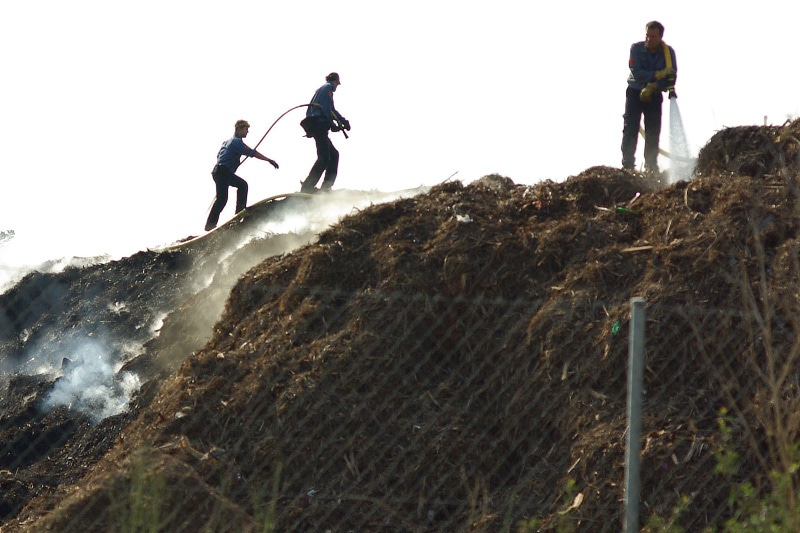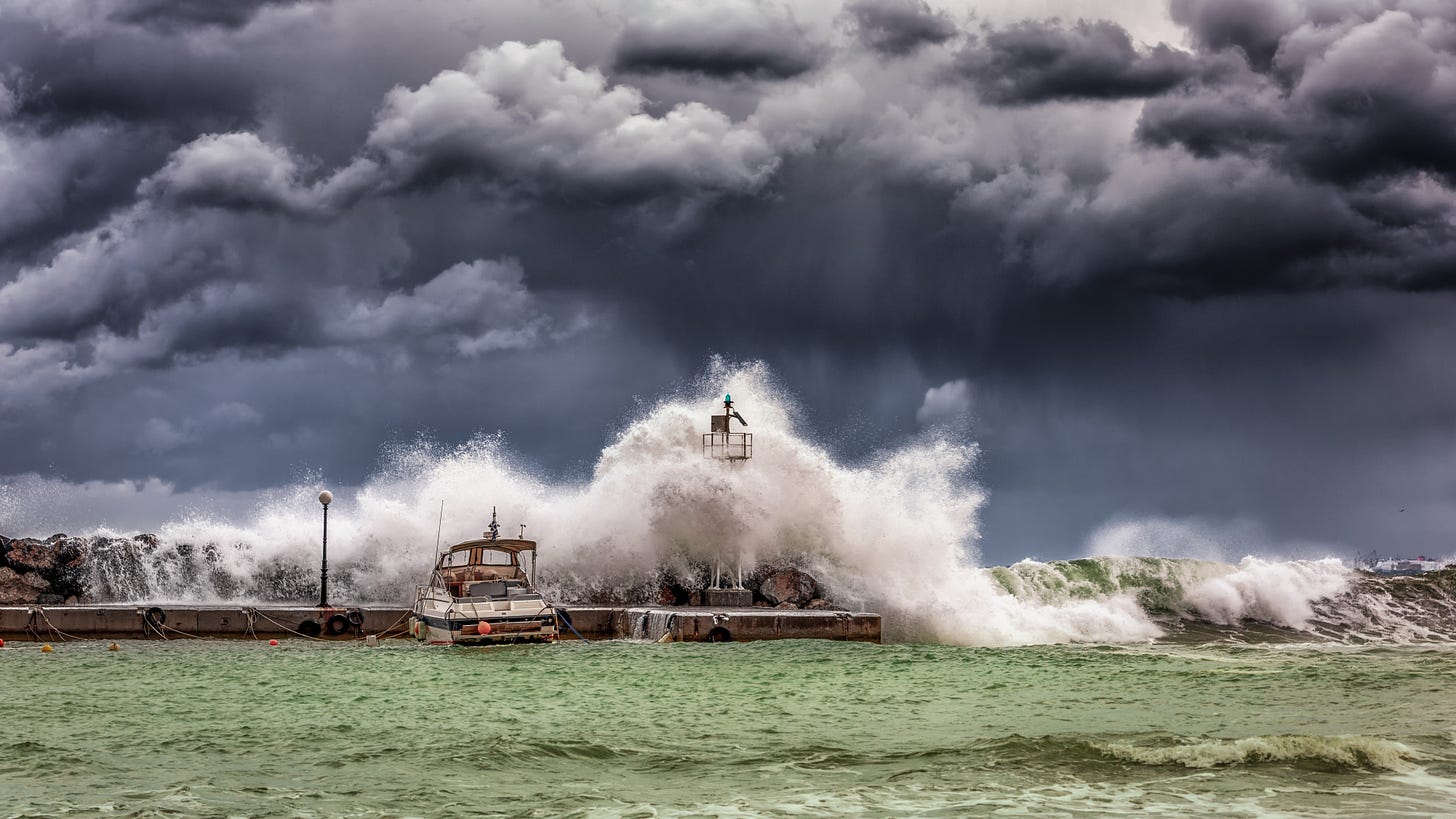Caught in a Trap - a poem by Adam Weeks
I once knew a young man, who might sound a lot like you
He flew to Oklahoma
Where he may have indulged, in a glass or two.
At the work party, drinks were a-flowin’-
Courage of all kinds
The king was on TV, playing Suspicious Minds.
What was I thinking?
I picked up the mic…
Is there anything I won’t do for a like?
I was only three verses in, when dread gripped my mind
Now at least three people were recording my end
I wish life had a rewind.
Gathering courage, I threw myself off the stage
Now life is over,
There’s no turning the page
So listen close, dear friends
Don’t mix business with pleasure
If reputation is something you treasure.I begin this edition with a short poem of woe from my history and now I’m trying hard not to rhyme throughout this edition. I’m not a poet but writing poetry is kind of fun. I don’t think it's proper to switch to first-person halfway through a poem but my conscience was eating at me. After this karaoke episode, I held a grudge against myself for quite some time. I felt like such a fool. If only someone would have introduced me to Calmposting all those years ago. The struggles of this life are unavoidable but luckily we can choose how we react to them. As I thought about the hard times and painful memories throughout my life the rusty wheels in my cavernous “melon” began to creak into motion. What is the one thing I’ve been chasing my whole adult life? Calm… Calm-Post. Calmpost? That’s it!
Calmposting might help transform your chaos into calm. Let’s look at Webster’s definition of calm.
Calm - noun - kälm
1. A period or condition of freedom from storms, high winds, or rough activity of water
2. A state of tranquility
I picked the two definitions that most apply to this conversation. Yes! This is what I seek. But how? First, I’d like you dear reader to think of a time when you felt anger, hurt, bad relationships, loneliness wounded pride, or embarrassment. While you think of yours I’ll share a short anecdote a friend shared with me. This is a tale of broken trust, and trauma, with a dash of wounded pride. This poor woman (let’s call her Anne) only wanted the best for her family. I can say with confidence that she certainly didn’t deserve what happened to her.
On this day Anne had some errands to run so she mistakenly invited her husband to join her. Anne’s husband uses a wheelchair so she pushed him out of the house and down the ramp to the waiting van. You should know the family van had a habit of mechanical issues around this time. As Anne started the van and moved the seats to allow her dear husband to enter she heard him exclaim, what is that”? Anne turned to find her husband pointing at something under the front of the van. “Look at that puddles”, he said. Anne didn’t see any puddles. Her husband insisted that Anne look more closely. He said, “You’ll have to get down really low to see it.” So Anne knelt next to the still-running van. She strained to locate the issue. A few seconds later a string of firecrackers lay hissing on the ground.
The string of Black Cats erupted behind her like machine guns in a parking garage. I have never seen fear turn to white-hot rage so quickly. She wheeled around with Bruce Lee quickness and taught me a lesson I will never forget. We ran some errands that day alright... I ended up buying Anne a new water cooler. I didn’t complain. I was just happy to be among the living. Anne didn’t need Calmposting that day. She immediately transformed her tragedy into a triumph. Anne enjoyed her cool fancy water all summer long and instant hot chocolate all winter.
OK back to you. Have you decided on one challenge from your past? It could be yesterday. It might be three years ago. Now that you have something in mind, let’s begin with a definition of compost. I found a pretty good summary on Wikipedia so let’s use that.
“Compost is a mixture of ingredients used as plant fertilizer and to improve soil's physical, chemical, and biological properties. It is commonly prepared by decomposing plant waste, food waste, and manure. The resulting mixture is rich in plant nutrients and beneficial organisms, such as bacteria, protozoa, nematodes, and fungi.”
You must understand what compost is to understand the analogy of Calmposting and how it can help you. When something goes wrong in your life that is comparable to the food waste and manure we carry around with us. We try to forget about what we are carrying even when it starts to smell. We tell ourselves that carrying trash around is just part of life. We focus on and sometimes cherish our victimhood. We tell ourselves that nothing good can come from garbage. This is wrong. Instead of doing these things, we can take charge of the decomposition process. If you look at my last post you will see what taking charge of the decomposition process might look like.
Step one in taking charge of this process is to understand that garden compost is made by combining two categories of organic material. The recipe includes adding green and brown waste. Green waste is typically a nitrogen source while brown is typically a source of carbon. Green materials contain some carbon and carbon materials contain some nitrogen. Let’s keep things simple and consider green materials such as grass, vegetable scraps, and cow manure to be good sources of nitrogen and brown materials such as wood chips, leaves, and cardboard to be good sources of carbon. Color is sometimes an indicator of which category each material is in but not always.
An interesting benefit of wood chips is that they can help add structure to your soil, while other “browns” like paper and cardboard can help absorb excess liquid released from the breakdown process. Wood chips can also act as bulking agents, creating air pockets that help trap oxygen in the compost pile and eventually in your garden. Compost helps build good soil consistency. Adding compost to your garden keeps the soil loose which makes it easier for roots to grow and ensures that plant roots get plenty of water and oxygen. Going back to our analogy, we certainly don’t want compacted soil in the garden of our souls.
The key to making good compost or Calmpost is to control the ratio of each ingredient. If you look up the carbon-to-nitrogen ratio for compost you’ll see the numbers vary a little depending on who you ask. A CN ratio of 30:1 is a generally accepted number for productive compost. Stay with me here. If our CN ratio is way off we will start to run into problems. If we add mostly carbon then our pile will grow cold, slow the composting process, and even begin to smell. If we add mostly nitrogen to the pile you will notice the pile smells bad because nitrogen will be lost in the form of ammonia. Yuck!
I want to be very clear about one thing. I’m not suggesting Calmposting is the only or best way to deal with all problems. I understand that some people suffer extreme trauma and abuse. In those cases, I suggest that you seek professional help. Ask your therapist about adding Calmposting to your life. Since I’m a Christian I have a testimony that Jesus Christ carries my heavy burdens and heals my broken heart through his atonement. He wants me to follow him and have joy in this mortal experience. I believe Jesus wants us to help one another. Calmposting may be an additional help to deal with our problems. If we want to be happy it is important to move from the position of victim to the position of giver and receiver.
In my analogy let nitrogen represent your negative experiences/problems. If you only add nitrogen to your pile it will begin to stink. Worse, you may even get used to that smell over time. Perhaps others will begin to smell it after you’ve passed the point of detecting it... Your other option is to attempt to toss negative experiences in the bin. However, if you keep throwing away the little parts of you that touched garbage you will be diminished over time. Remember when you pick and eat fruits and vegetables from your garden you remove nutrients. Over time your garden will become depleted if you do nothing or do the wrong thing. A better option is to add something to your nitrogen so that it breaks down properly. Once you have a rich pile of Calmpost you can return nutrients to your depleted garden. Once you replenish your garden you will have enough fruit to sustain yourself and even give away.
The calm will feel like sitting in a quiet garden just before the summer sun rises up from behind the mountain. So what do I add to my nitrogen pile so that it breaks down properly? I think you may have already guessed the answer. We need to add carbon to ensure that our pile breaks down naturally and smells lovely no matter what challenges we face. It can be hard to live with yourself if you are constantly distracted by the smell. Let me be clear, we need to add a lot of carbon to our piles! Refer back to the ratio of 30:1. For every part of nitrogen we need 30 parts of carbon but not just any carbon. We need to add the Carbon of Charity to our Nitrogen of Negativity. Here is an explanation of what I’m talking about.
The Carbon of Charity (brown) = Charity, Selflessness, Service, Hope, Forgiveness, and Love
The Nitrogen of Negativity (green) = Difficult Experiences, Anger, Hurt, Pride, Bad relationships, and Loneliness
If the explanation above worries you that’s ok. Tending a compost pile isn’t difficult but it requires consistent attention. Calmposting doesn’t require perfection but you’re reward will correspond closely to your diligence and intention. Compost piles require regular turning to keep the microorganisms in the pile alive and actively breaking the organic matter down. It is important to LEAVE YOUR PILE ALONE sometimes. This is part of the process. Constantly fretting over ratios and turning daily will slow things down. In our Calmpost analogy adding the Carbon of Charity and turning the pile is accomplished through our actions and thoughts. Every time you serve someone, feel hopeful or show love you are adding the Carbon of Charity to your pile. This transforms your hurt and sorrow into nutrients your garden (soul) can use. Doing activates healing... I believe that following the example of Jesus Christ is a fast track to calming the storm in our soul. Ask him for help. I think he’ll be quite interested in how you feel. I realize not everyone who reads this is Christian and that’s ok. I want you to feel welcome and express my beliefs at the same time.
I mentioned microorganisms earlier but I need to share more about them. In Calmpost the microorganism component is represented by positive intentions. If you practice maintaining positive thought patterns the components in your pile will react according to the laws of the universe. The microorganisms in a physical compost pile need four primary ingredients to live and do their job. As mentioned earlier the most important ingredients for a gardener are carbon and nitrogen. The other two are Phosphorus and Potassium. Microorganisms/bacteria have a CN ratio of about 8:1. They need lots of carbon for energy and nitrogen to grow proteins. If these microorganisms get the right ratio they will thrive.
When they thrive your pile will heat up. Mesophilic microorganisms thrive at first. They like moderate temperatures. Their activity generates more heat which ends their life. Once the pile warms up thermophilic microorganisms take over and generate even more heat. A temperature of 160F is not uncommon in a healthy compost pile. The heat generated in a pile causes the ingredients in the pile to break down quickly and the heat plays a necessary role in killing pathogens and weed seeds. That’s how it is safe to use manure in compost. The heat is very important In our Calmposting analogy. If you have manure in your life and you want to convert that into a safe substance to feed your soul's garden, you better ensure the pathogens are gone. If you toss in a bunch of weeds you don’t want them establishing themselves in your garden.
Controlling the decomposition process of our sorrow and hurt is what Calmposting is all about. If you err I would err on the side of adding too much Carbon of Charity. It can’t hurt. The last thing you need to keep your compost pile going is a little water. Bacteria need moisture to survive. In Calmpost the moisture component is represented by humor. Take mortality in stride and laugh a little. Forgive yourself and be joyful. Breaking down the manure of your life requires humor. See my attempt at poetry above.
A certain amount of time is necessary to finish compost and Calmpost. We have a degree of control over how much time this will take if we pay attention to the way we add things to our pile (the ratio). When it’s done, Calmpost can be used to feed your garden. At first, it will provide some soul-available nutrients to your garden but not much which is how it works in a physical garden. When you add compost to your garden it contains plant-available nutrients but much less than 1% of that compost pile is plant-available nitrogen. In fact that nitrogen can be washed out of your soil by heavy watering or a couple of good rain storms.
You might be thinking about buying NPK in a bottle at this point. You can try this but it costs money and you could burn your plants. However, that won’t add any carbon to our soil and it won’t transform your manure into something wonderful. If you buy it in bottles you’ll will miss out on the regenerative process. The real benefit of composting is realized through the slow release of nutrients. The biology (bacteria/fungus) in your soil will break down organic molecules causing Nitrogen, Phosphorus, and Potassium (NPK) to be released gradually over years. And so it goes with Calmpost. If you make this process a lifetime habit you will experience a beautiful calm in your garden. Until we meet again.
Adam
Wait just a darn minute… I want to leave you with one of my favorite garden songs, enjoy!
I Never Promised you a Rose Garden - Lynn Anderson
P.S. I love the words
Along with the sunshine there's gotta be a little rain sometime
When you take you gotta give so live and let live or let.











Calm is a treasure, particularly calm and peace fostered through inspired love, self sacrifice, selfless service and good humor